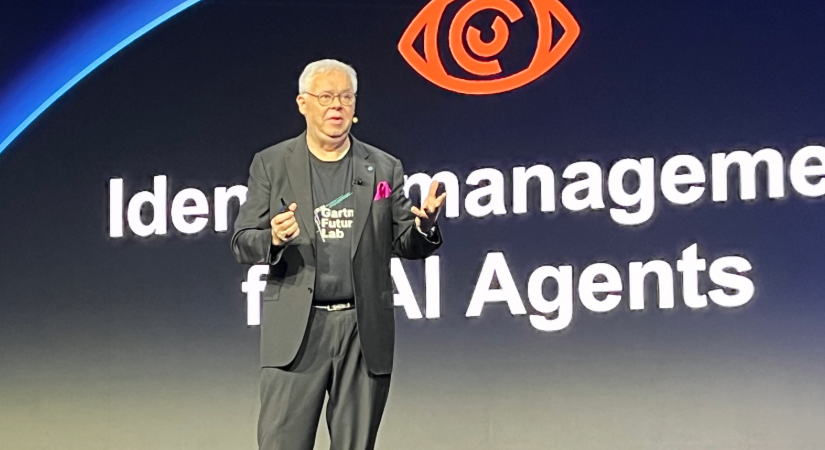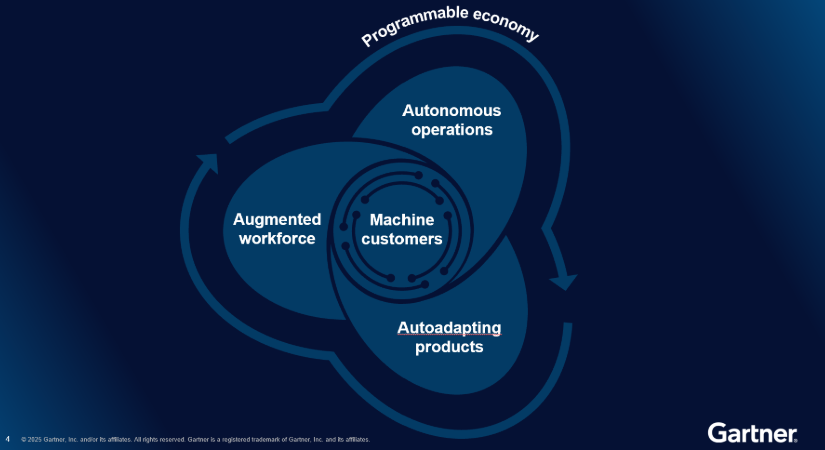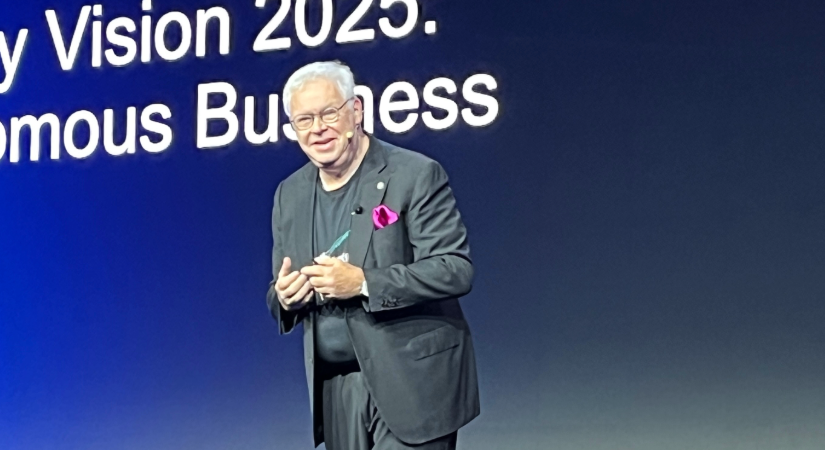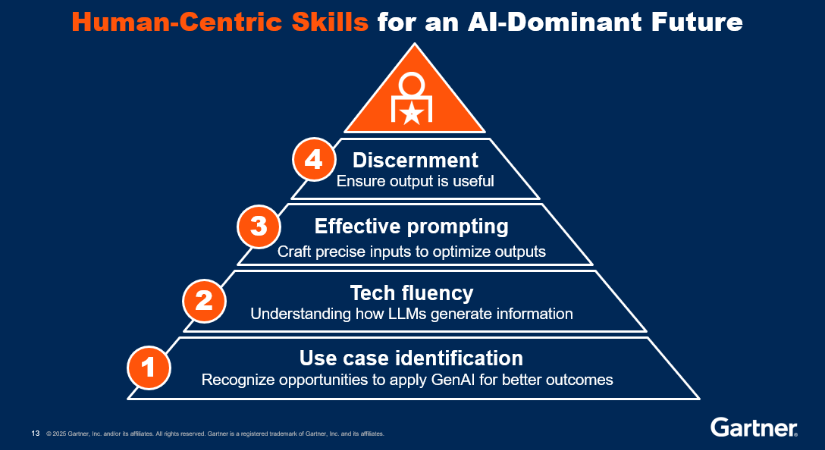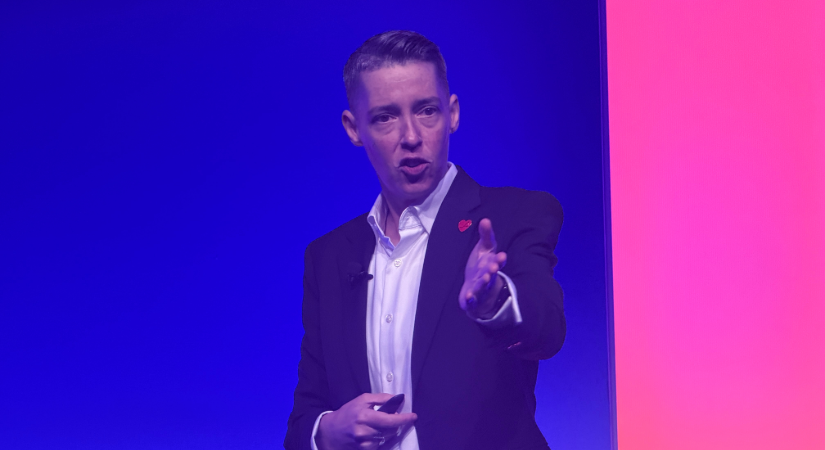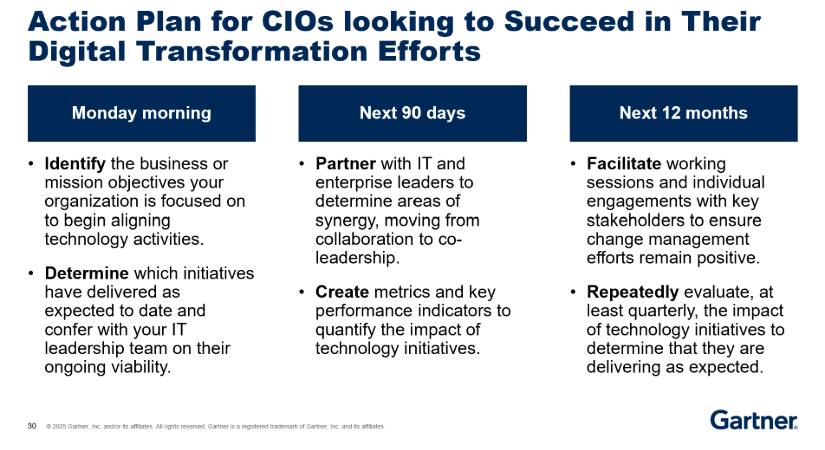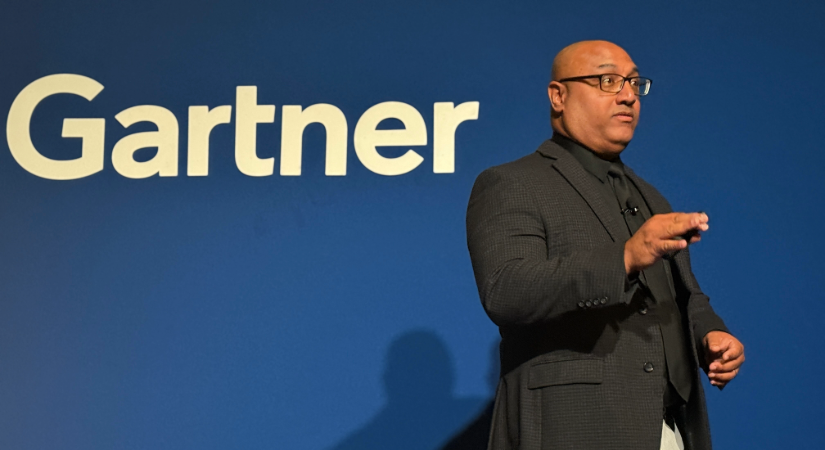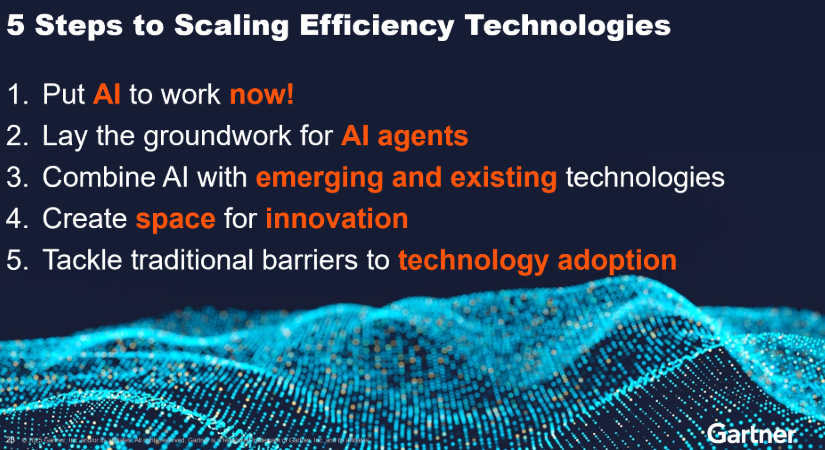Orlando, Fla., October 22, 2025
- Gartner client? Log in for personalized search results.
Gartner IT Symposium/Xpo 2025 Orlando: Day 3 Highlights
Overview
We are bringing you news and highlights from Gartner IT Symposium/Xpo, taking place this week in Orlando, Florida. Below is a collection of the key announcements and insights coming out of the conference.
On Day 3 from the conference, we are highlighting the Gartner's emerging technology vision for 2026, generative AI skills to master, key factors driving success in digital transformation initiatives and scaling government efficiency with AI, and emerging technologies. Be sure to check this page throughout the day for updates.
Key Announcements
- Gartner Survey Finds All IT Work Will Involve AI by 2030; Organizations Must Navigate AI Readiness and Human Readiness to Find, Capture and Sustain Value
- Gartner Identifies the Top Strategic Technology Trends for 2026
- Gartner Survey Reveals 50% of Non-U.S. CIOs and Technology Executives Anticipate Changes to Vendor Engagement Based on Regional Factors
- Gartner Predicts Enterprise Spending on Battling Misinformation and Disinformation Will Surpass $30 Billion by 2028
- Gartner Unveils Top Predictions for IT Organizations and Users in 2026 and Beyond
- Gartner Forecasts Worldwide IT Spending to Grow 9.8% in 2026, Exceeding $6 Trillion For the First Time
Signature Series: Emerging Technology Vision 2025
Presented by Frank Buytendijk, Distinguished VP Analyst and Gartner Fellow
Last year Gartner introduced the concept of "hypermachinity," the worldview of taking people out of the equation to create a more scalable, reliable and consistent process, system or business. In this session, Frank Buytendijk, Distinguished VP Analyst and Gartner Fellow, explored immediate trends, the deeper implications, and the more fundamental questions of where business needs to go.
Key Takeaways
“Autonomous business is a strategy that uses self-learning and self-improving technology to automate value creation and delivery. Gartner predicts that by 2035, in at least one industry, the market leader will be an autonomous business.”
“Operational work becomes managing work – different job, same people. Through 2035, the proportion of people managing or overseeing operations will grow tenfold”
“Gartner recommends starting now with digital twins, setting preference for embodied AI agents, and following tokenization technologies.”
“By 2045, autonomous business platforms and ecosystems each have created their own currency as a way to differentiate and keep their platforms exclusive and unique.”
“Transformation, in essence, is becoming a better version of yourself. Start with vision. Decide what your organization will look like as an autonomous business. And in that process, realize that your organization first and foremost is a social construct. Keep stressing the human side of serving customers, and the human side for your people.”
Journalists can receive additional information and/or request an interview with the Gartner analyst by contacting Matt LoDolce at matt.lodolce@gartner.com.
4 Generative AI Skills to Master in 2025
Tori Paulman, VP Analyst, Gartner
As organizations race to unlock the full potential of generative AI (GenAI), workforce readiness imperils executive expectations. As the most AI fluent leaders, CIOs and their teams must take responsibility for driving workforce AI dexterity. In this session, Tori Paulman, VP Analyst at Gartner, introduced an experiential learning framework focused on four essential GenAI skills every worker must master.
Key Takeaways
- Skill 1: Identify use-case opportunities - “Opportunity spotters recognize where GenAI can drive meaningful impact, aligning AI initiatives with business objectives and championing innovation through carefully selected use cases.”
Skill 2: Build GenAI tech fluency - “Understanding how GenAI works and navigate the jagged frontier enables smarter tool selection, helps avoid common pitfalls and integrates AI advancements to unlock new business possibilities.”
Skill 3: Develop effective prompting - “Crafting clear, targeted instructions that get the best results from GenAI, rather than treating prompting like a one-time withdrawal, helps with developing the skills to converse with machines.”
- Skill 4: Evaluate with discernment - “Critically interpret GenAI outputs by not only verifying their accuracy but by also judging their relevance and usefulness for the task.”
Journalists can receive additional information and/or request an interview with the Gartner analyst by contacting Matt LoDolce at matt.lodolce@gartner.com.
4 Key Factors Driving Success in Digital Transformation Initiatives
Cesar Lozada, Sr Director Analyst, Gartner
CIOs often view their digital transformation efforts as a continuation of what their current technology environment is, disconnected from the enterprise's strategy or business outcomes. In this session, Cesar Lozada, Sr Director Analyst at Gartner, addressed four key factors that drive excellence in digital transformation within organizations by examining how organizations build their strategy, measure their outcomes and achieve success in their digital initiatives.
Key Takeaways
“There are four ingredients of digital success: alignment to business goals, IT and business co-leadership, measurability of success, and intentionality of change management.”
“Co-leadership is a collaborative approach in which multiple executives, particularly CIOs and other CxOs, share leadership responsibilities and accountability for achieving business outcomes, especially in the context of digital initiatives. Co-led initiatives are twice as likely to deliver targeted outcomes.”
“CIOs can achieve success by ensuring digital initiatives are strategically integrated with business goals, transforming technology into a core facilitator of operations.”
“Overall, mature organizations are 4.1 times more likely to maintain regular (at least quarterly) reporting of the value IT delivers against outcome-driven metrics than all other organizations.”
Journalists can receive additional information and/or request an interview with the Gartner analyst by contacting Matt LoDolce at matt.lodolce@gartner.com.
Scaling Government Efficiency With AI and Emerging Technologies
George Sellner, Sr Director Analyst, Gartner
As governments accelerate technology-driven efficiency investments, CIOs must lead the adoption of emerging technology platforms that deliver rapid value to executives. In this session, George Sellner, Sr Director Analyst at Gartner, demonstrated how CIOs can align their enterprise’s efficiency goals with their AI and automation strategies to optimize their impact on operational efficiency, and guide their organizations into a digital future.
Key Takeaways
- “There are five steps to scaling efficiency technologies: put AI to work now, lay the groundwork for AI agents, combine AI with emerging and existing technologies, create space for innovation, and tackle traditional barriers to technology adoption.”
“We need to move beyond hopeful implementations and start building intentional, impact-driven AI strategies.”
“While we need to protect personal data, we also need to recognize that not every AI application is high-risk—and we shouldn’t let fear stall progress.”
“We need to move away from the unknown and toward the orchestrated, explainable, and auditable. Instead of one big, mysterious AI agent making sweeping decisions, we’re seeing the rise of many small agents, each with a clear role.”
“AI on its own is powerful, but it’s not a solo act. To unlock its full potential, we need to combine it with the right supporting technologies like agent orchestration tools, machine customers, and event-driven APIs.”
Journalists can receive additional information and/or request an interview with the Gartner analyst by contacting Matt LoDolce at matt.lodolce@gartner.com.
That's a wrap. See you next year!
Media contact
Matt LoDolce
Gartner
matt.lodolce@gartner.com
Meghan Moran
Gartner
meghan.moran@gartner.com
Latest releases
About Gartner
Gartner (NYSE: IT) delivers actionable, objective business and technology insights that drive smarter decisions and stronger performance on an organization’s mission-critical priorities. To learn more, visit gartner.com.
